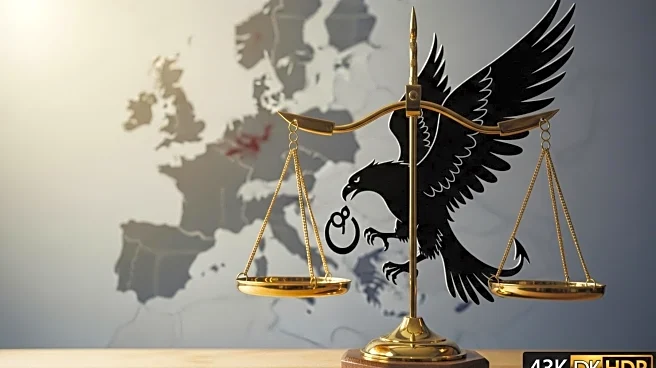What's Happening?
Nicolas Dufourcq, head of France's state investment bank Bpifrance, has expressed concerns about Europe's economic position, stating that the continent is being 'doubly colonized' by Chinese industry and U.S. technology. Speaking at a private capital conference in Paris, Dufourcq highlighted that Europe is failing to invest in its own critical industries, instead exporting its savings to the U.S. and China. He pointed out that European investors often prefer conservative assets like real estate or U.S. tech over local innovations. Dufourcq cited the example of Quandela, a French quantum computing startup, which struggles to attract European private capital despite its technological advancements. Bpifrance has invested in Quandela, but Dufourcq emphasized the need for more private investment in deep tech to secure Europe's future.
Why It's Important?
The warning from Dufourcq underscores a significant challenge for Europe: the need to retain and invest its capital domestically to foster innovation and economic growth. The current trend of investing in foreign markets, particularly in U.S. tech, could lead to a long-term economic decline for Europe. This situation highlights a cultural divide in investment strategies, with Europe being more risk-averse compared to the U.S. The lack of investment in local startups could hinder Europe's ability to compete globally in emerging technologies, potentially affecting its economic sovereignty and growth prospects.
What's Next?
To address these challenges, Europe may need to shift its investment culture towards a more aggressive and risk-taking approach, similar to that of the U.S. This could involve encouraging private capital to support local innovations and strategic sectors. Additionally, European policymakers and financial institutions might consider creating incentives for domestic investments in high-growth industries. The outcome of these efforts could determine Europe's ability to maintain its economic independence and competitiveness on the global stage.
Beyond the Headlines
The situation raises broader questions about the sustainability of Europe's economic model and its reliance on external markets. The cultural and strategic shift required to change investment patterns may also involve educational and policy reforms to foster a more entrepreneurial mindset. Furthermore, the geopolitical implications of Europe's economic dependency on the U.S. and China could influence its foreign policy and international relations.









